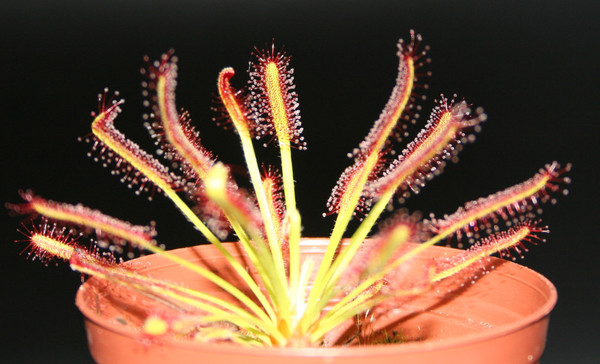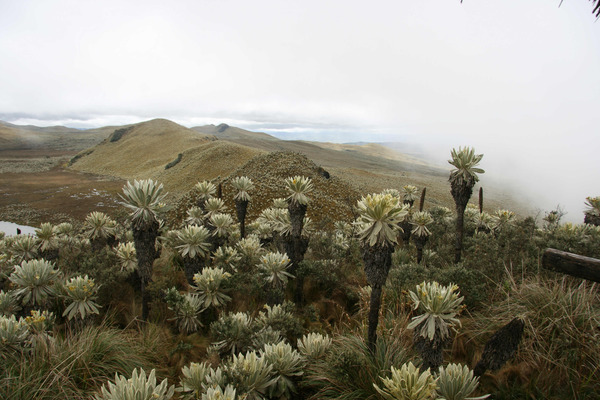Botanik Seminar
Ein gemeinsames Seminar des Lehrstuhls für Systematik, Biodiversität & Evolution der Pflanzen, der Botanischen Staatssammlung München und des Botanischen Gartens München-Nymphenburg
Wann? Mittwochs
- Mittwochs um 16:15 Uhr (während des Semesters)
Wo?
- Kleiner Hörsaal (Raum 109) im Botanischen Institut, Menzinger Str. 67, 80638 München.
Programm
10.04.2024 um 15:15 Urh: Prof. Dr. Susanne S. Renner, Washington University in St. Louis, U.S.A.
Spores before sporophytes and sporophytes before archegonia? The evolution of the land plant life cycle
Host: Prof. Dr. Gudrun Kadereit
24 April 2024: Laura Ávila Robledillo, Max Planck Institute of Plant Breeding Research, Department of Chromosome Biology, Cologne, Germany.
Initial insights about mono- and holocentromeres in carnivorous Drosera species
Sundews are carnivorous plants that grow in nutrient-poor habitats. They are distributed globally, with more than 200 species described. In addition to carnivory, sundews are reported to have great diversity of genomic and chromosomal features. The chromosomes of sundews have been studied for over a century revealing extraordinary variability in chromosome number and ploidy across species. But perhaps, one of the most fascinating features of sundews chromosomes is the fact that several species analyzed within the genus Drosera lack a visible primary constriction, leading to the assumption that holocentricity is common in the genus. This is very exciting as it points to the occurrence of both monocentric and holocentric species in a single genus.
Combining genomics and cytogenetics we are analyzing the genomes of Drosera species differing in centromere organization. The development of specific centromere markers allows us to verify the centromere type of our set of species. Our preliminary data reveals for the first time, the different genome architecture of mono- and holocentric Drosera and suggest that satellite repeats are associated with centromeres in both types. Synteny analyses among the selected Drosera species and its sister clade Nepenthes gives insights into the karyotype evolution of the group showing that events of fission and fusions are common in the group.
This work could provide the bases for the understanding of the genomic changes associated with holocentricity as well as the drivers of this transition.

Photo: Drosera capensis
Host: PD Dr. Andreas Fleischmann
22.05.2024: Dr. Ekaterina Pushkareva, Botanical Institute, University of Cologne, Germany.
Biocrusts from the High Arctic: microbial community composition and their potential functions
Biological soil crusts (biocrusts) are essential components of polar ecosystems and play an important role in shaping the fragile environments of the Arctic and Antarctic regions. Biocrust are composed of a diverse array of bacteria, fungi, algae, lichens, and bryophytes that interact with the soil particles, creating a fragile layer on the soil's surface. They serve as pioneers in barren landscapes, contributing significantly to soil stability, nutrient cycling, and moisture retention. Understanding their composition, distribution, and ecological functions is crucial for comprehending the complex dynamics of polar ecosystems. Investigating these crusts offers insights into their resilience against extreme conditions and their pivotal role in maintaining the overall biodiversity and ecological balance in these harsh, yet vulnerable, polar environments.
Host: PD Dr. Andreas Beck
29.05.2024: Dr. Alistair Leverett, University of Cambridge, England.
Clusia: a (re)emerging model genus for studying crassulacean acid metabolism and succulent traits
Host: Dr. Thibaud Messerschmid
05.06.2024: Dr. Andrew Rozefelds, Principal Scientist and Curator of Palaeobotany at Queensland Museum, Australia.
The Cenozoic fossil record of northern Australia
Host: Dr. Elizabeth Joyce
12.06.2024: Dr. Petr Sklenář, Charles University in Prague, Czech Republic.
Plants from the tropical high Andes – evolution and ecology
The Tropical Andes, a hotspot of biodiversity, harbour several textbook examples of adaptive radiations in plants. Lupins, gentians, valerians, espeletias, what do they have in common? Why are they so diverse? The „summer every day, winter every night“ of the tropical high mountains provides unique environmental settings. But how can this be linked to plant diversification? The talk offers colorful plants, many questions, and maybe some answers.

Photo: Espeletia in Páramo Angel
Host: Dr. Simon Pfanzelt
26.06.2024: Eintauchen project, AG Gottschling.
... 17.07.2024
________________________________________

